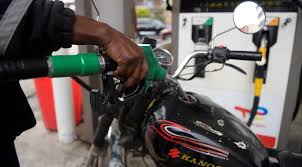The average pump price of Premium Motor Spirit (PMS), also known as petrol, jumped by 76.73 per cent year-on-year in April 2025, reaching N1,239.33 per litre, according to data released by the National Bureau of Statistics (NBS) on Wednesday.
This represents a significant increase from N701.24 in April 2024, following the Federal Government’s decision to remove petrol subsidies. The NBS report titled “Premium Motor Spirit (Petrol) Price Watch (April 2025)” highlighted how fuel prices continue to fluctuate despite some downward adjustments from local refiners.
On a month-on-month basis, however, petrol prices slightly dropped by 1.77 per cent from N1,261.65 in March 2025, signaling some relief for consumers, albeit marginal.
The report also showed wide regional and state variations in pump prices. Imo State recorded the highest average petrol price at N1,588.50, followed closely by Jigawa (N1,567.84) and Sokoto (N1,550.00). On the other end of the spectrum, Yobe State had the lowest average price at N970.00 per litre, while Kwara (N1,014.85) and Osun (N1,042.49) also recorded relatively lower prices.
By geopolitical zones, the South-East led with the highest average price of N1,341.71, while the South-West had the lowest at N1,138.64. Other regional averages include:
- North-West: N1,325.90
- North-Central: N1,242.94
- South-South: N1,222.54
- North-East: N1,166.27
Despite efforts by domestic refiners like Dangote Refinery and the Nigerian National Petroleum Company Limited (NNPCL) to stabilise prices, volatility in the downstream sector has persisted. In mid-April, Dangote Refinery reduced its ex-depot price to N835 per litre, while NNPCL slashed retail prices to around N910 in Abuja and other major cities. However, these changes have yet to significantly reflect in final pump prices across the country.
The current fuel price situation is also contributing to broader inflationary pressures. According to the Central Bank of Nigeria (CBN) in its April 2025 Inflation Expectation Survey, 91 per cent of respondents cited rising energy prices, particularly petrol, as the top driver of inflation. Additionally, 86.7 per cent of respondents blamed higher transportation costs, directly linked to expensive fuel, for rising living expenses.
Market analysts have noted that without a full return to stable and large-scale local refining, especially from refineries like Dangote and the upcoming Port Harcourt plant, petrol prices may remain high. The limited effect of the recent N15 cut by Dangote Refinery, though welcomed, shows how dependent final pump prices are on logistics, taxes, and market distribution dynamics.
